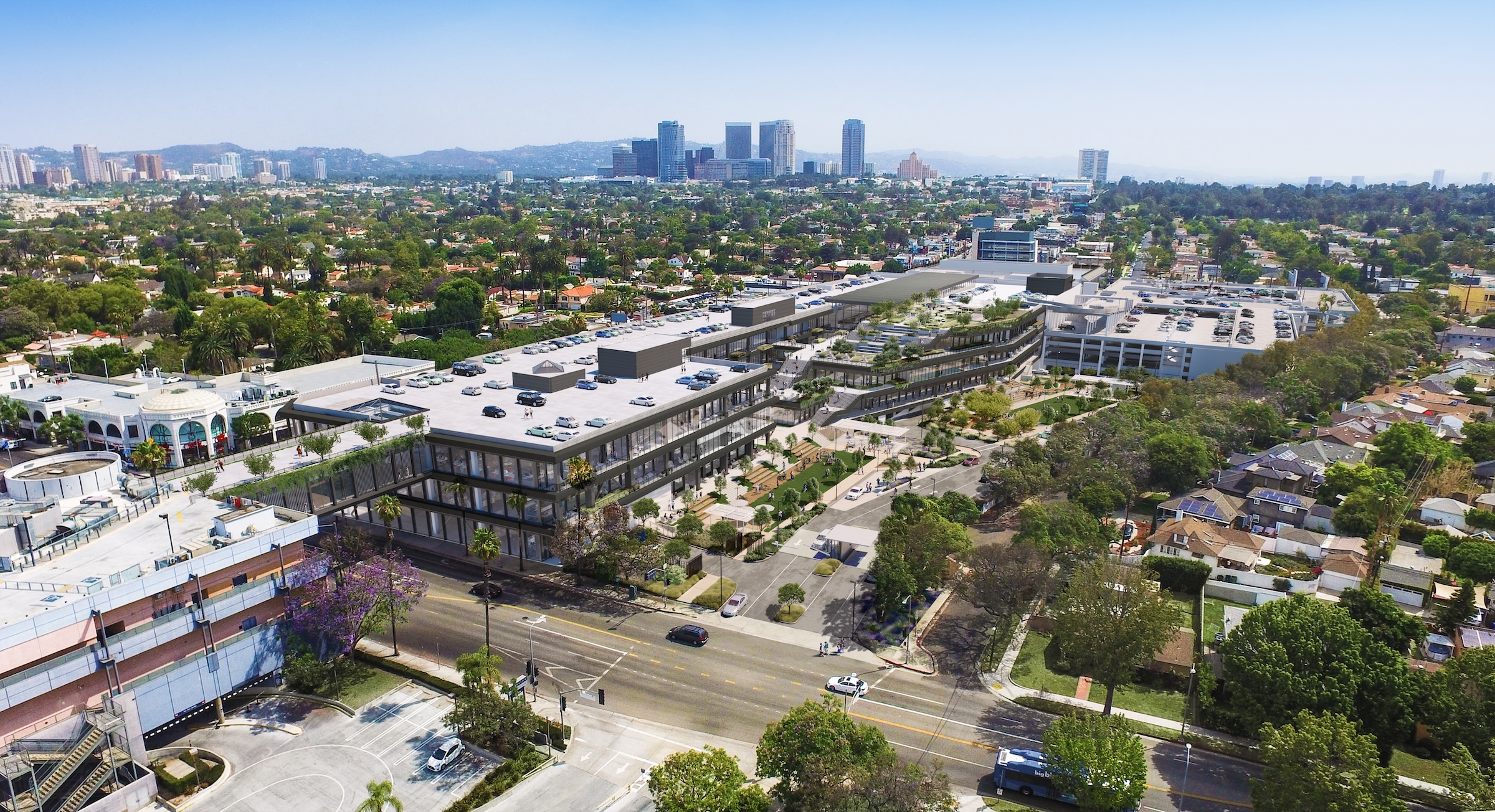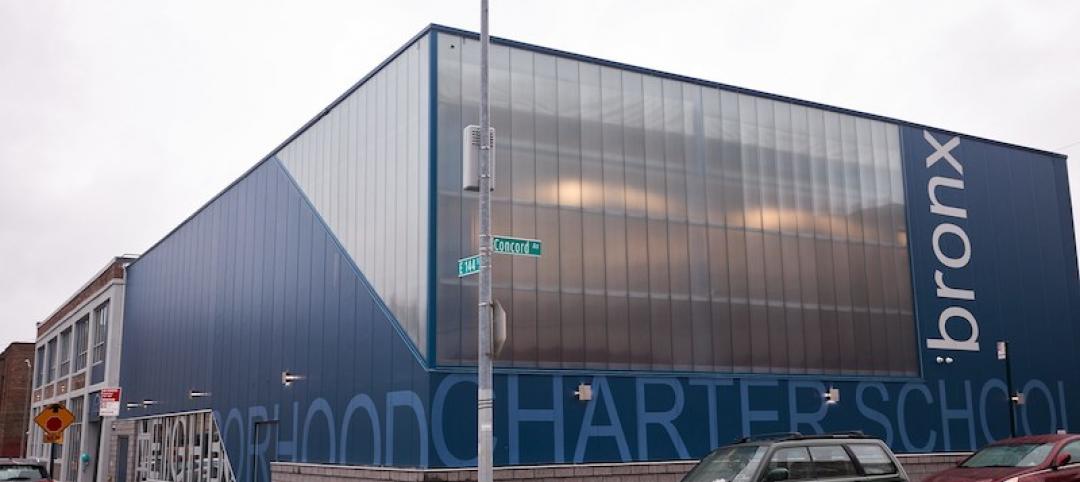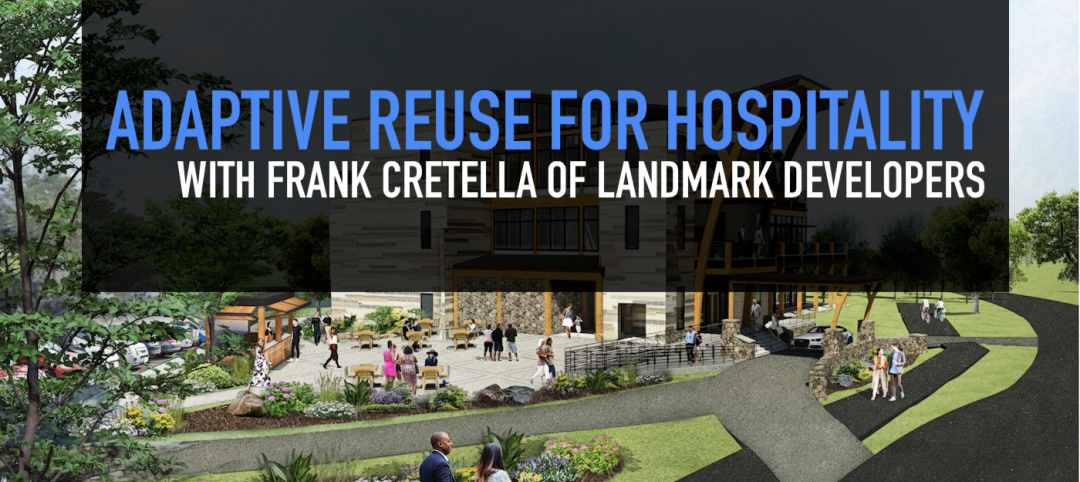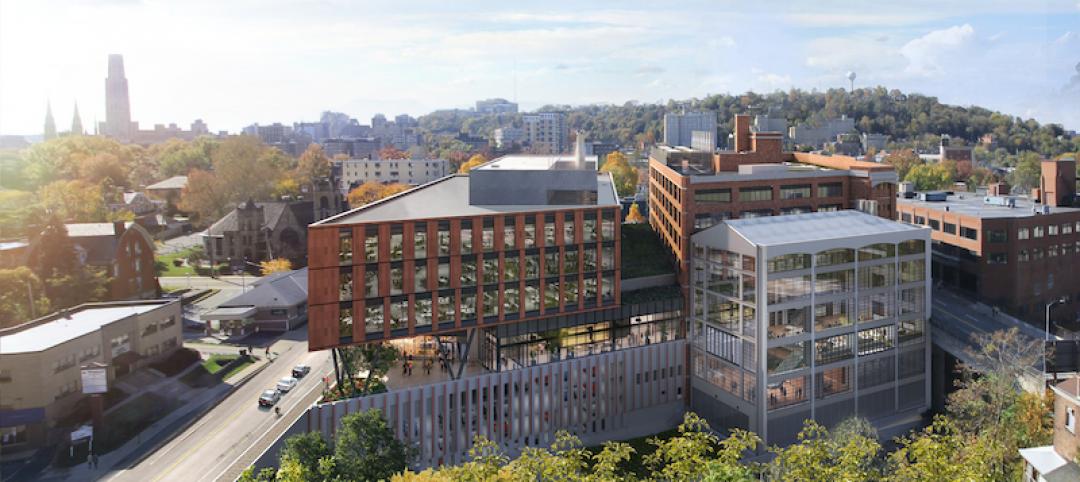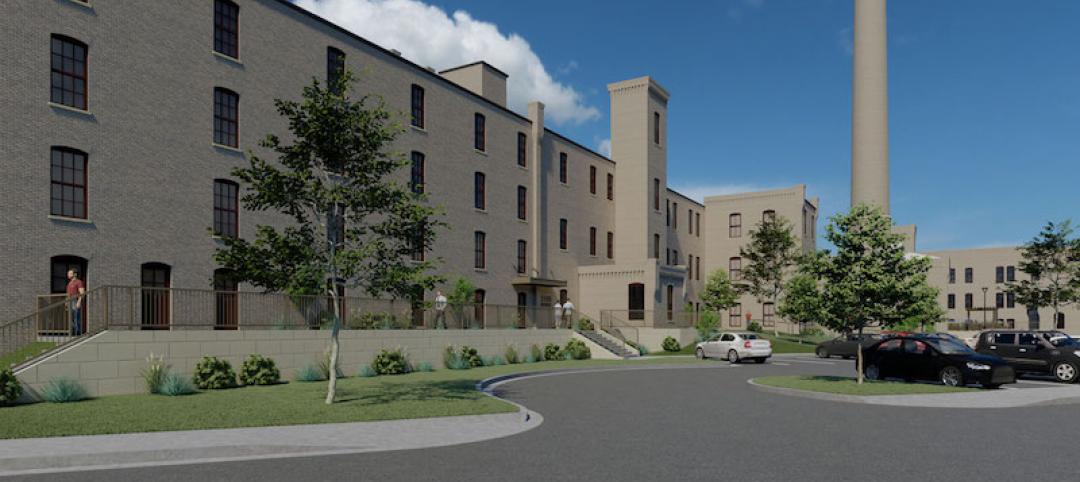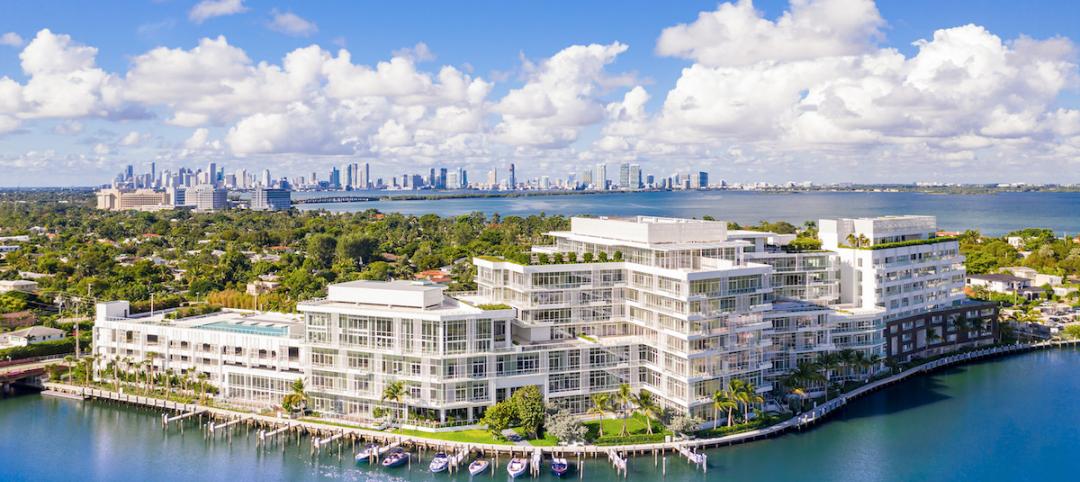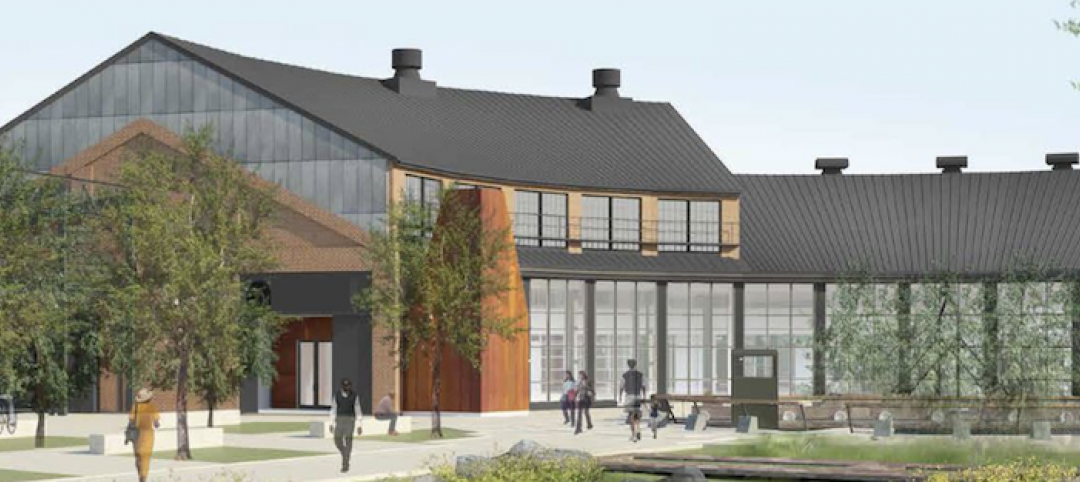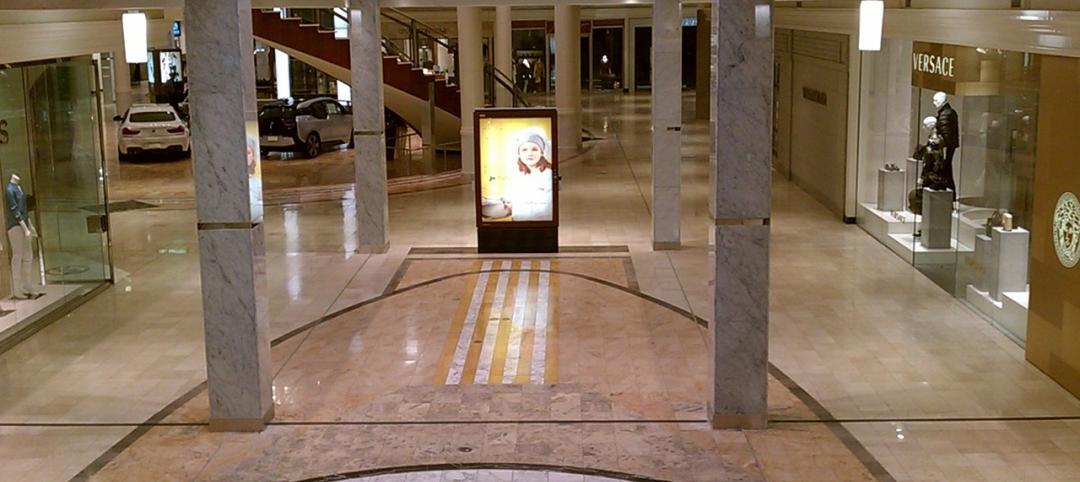UCLA recently acquired a former mall that it will convert into the UCLA Research Park that will house the California Institute for Immunology and Immunotherapy at UCLA and the UCLA Center for Quantum Science and Engineering, as well as programs across other disciplines. The 700,000-sf property, formerly the Westside Pavilion shopping mall, is two miles from the university’s main Westwood campus. Google, which previously leased part of the property, helped enable and support UCLA’s acquisition.
The Research Park will make use of the flexible work areas within the property. The expansive, high-ceilinged indoor space will be used for research laboratories and offices. The former mall also includes a 12-screen multiplex movie theater that may be converted into lecture halls or performance spaces, allowing UCLA to offer programming across the arts, humanities, sciences, and social sciences. The property is easily accessible by public transportation lines, including the Westwood/Rancho Park Metro station that connects directly to downtown. It is also minutes away from UCLA’s Westwood campus by bus.
The institute will draw on the expertise of UCLA faculty members, scholars from other higher education institutions, and other leading scientists and practitioners in clinical and biomedical scientific research, including human genetics, genomics, computer science, engineering, and information science. Researchers will pursue new tools, treatments and vaccines for cancer, autoimmune and immune deficiency disorders, infectious diseases, allergies, heart conditions, solid organ transplantation, and other major health-related issues.
The UCLA Research Park will also be home to the UCLA Center for Quantum Science and Engineering, which conducts research in the emerging field of quantum science and technology. Research explores quantum computing, communication, and sensing, with the aim of dramatically increasing information processing power by harnessing the unusual behavior of subatomic particles. Founded in 2018 and operated by the UCLA College’s Division of Physical Sciences and the UCLA Samueli School of Engineering, the center has received funding from Boeing and the National Science Foundation and includes more than two dozen UCLA faculty from the fields of physics, engineering, computer science, chemistry, mathematics, and biostatistics. The center will also house the Quantum Leap Challenge Institute for Present and Future Quantum Computation, an NSF-funded initiative that consists of eight universities.
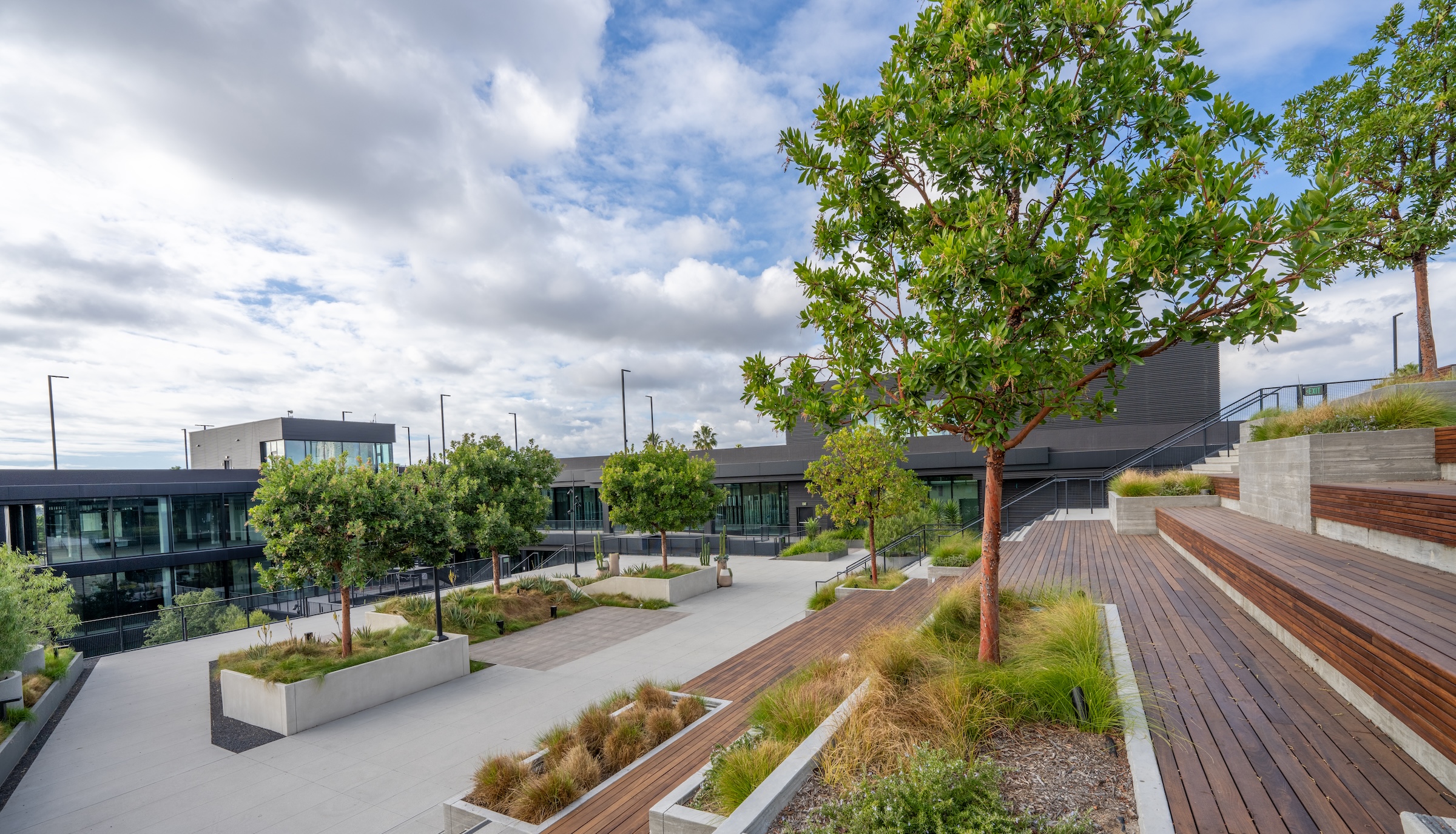
New space at the UCLA Research Park will facilitate greater collaboration between the quantum center and its partners and will solidify UCLA’s leadership role in this developing field, according to Miguel Garcia-Garibay, dean of physical sciences, and Alissa Park, dean of engineering.
This major acquisition—UCLA’s third in the past 15 months—is part of a transformative expansion designed to broadly extend resources and institutional expertise, deepen the campus’ connections to Los Angeles’ diverse and dynamic communities, and meet the growing demand for top-tier higher education across the city and region. Each acquisition has been an adaptive and sustainable development, repurposing existing structures for new uses while avoiding the need for major construction.
Owner and/or developer: UCLA
Design architect: Flad Architects
Other building team members have not yet been selected.
Here is the full press release from Flad Architects:
Flad Architects has been selected as Executive Architect for the UCLA Research Park Master Plan Study, which will include the development of a phased adaptive reuse master plan and demising plan to convert the former site of the 700,000-square-foot Westside Pavilion shopping mall into a new research park.
The research park will serve as a nexus for discovery and innovation, bringing together academic researchers, corporate partners, startups, and government agencies to advance fields of science and technology that have the potential to lead to previously unimaginable possibilities to address complex challenges.
Upon completion, the new Research Park will host two multidisciplinary research centers: the California Institute for Immunology and Immunotherapy at UCLA and the UCLA Center for Quantum Science and Engineering. The design will also include projections for future growth.
Uniting breakthroughs from biosciences, quantum science and engineering, and other emerging technologies has far-reaching potential to save lives and revolutionize healthcare outcomes.
The Institute for Immunology and Immunotherapy will draw on the expertise of UCLA faculty members, scholars from different higher education institutions, and other leading scientists and practitioners in clinical and biomedical scientific research. Researchers will pursue new tools, treatments and vaccines for cancer, autoimmune and immune deficiency disorders, infectious diseases, allergies, heart conditions, solid organ transplantation, and other major health-related issues.
Founded in 2018, the UCLA Center for Quantum Science and Engineering conducts research in the emerging field of quantum science and technology — including quantum computing, communication and sensing — to dramatically increase information processing power by harnessing the unusual behavior of subatomic particles. It is operated by the UCLA College’s Division of Physical Sciences and the UCLA Samueli School of Engineering.
The UCLA Research Park project is part of UCLA’s plan to expand the campus footprint through adaptive reuse and sustainable development, repurposing existing structures while avoiding the need for major new construction.
The expansion plan aims to greatly extend the university’s resources and institutional expertise, deepen the campus’ connections to Los Angeles’ diverse and dynamic communities, and meet the growing demand for top-tier higher education across the city and region.
Located on the 10800 block of West Pico Blvd., two miles south of the UCLA campus, the property consists of two buildings connected by an enclosed pedestrian bridge spanning Westwood Boulevard.
The project is scheduled to be completed in May 2027.
Related Stories
Adaptive Reuse | Aug 25, 2021
The first net-zero hotel in the U.S. is nearing completion in Connecticut
Solar arrays will provide the electricity for the Hotel Marcel, whose name recalls the building’s original designer.
Adaptive Reuse | Aug 13, 2021
Developers are repositioning vacant space as charter schools
Transwestern is working with the National Alliance of Public Charter Schools to provide a turnkey solution.
Hotel Facilities | Jun 18, 2021
Adaptive reuse for hospitality, with Frank Cretella of Landmark Developers
In an exclusive interview for HorizonTV, Landmark Developers' President Frank Cretella talks about the firm's adaptive reuse projects for the hospitality sector. Cretella outlines his company's keys to success in hospitality development, including finding unique properties and creating memorable spaces.
Adaptive Reuse | Jun 2, 2021
An old Ford factory in Pittsburgh is being adapted to become a biomedical research facility
This is the latest step in the city’s post-industrial resurgence.
Adaptive Reuse | Apr 15, 2021
The Weekly Show, Apr 15, 2021: The ins and outs of adaptive reuse, and sensors for real-time construction monitoring
This week on The Weekly show, BD+C editors speak with AEC industry leaders from PBDW Architects and Wohlsen Construction about what makes adaptive reuse projects successful, and sensors for real-time monitoring of concrete construction.
Adaptive Reuse | Feb 24, 2021
Adaptive reuse project brings co-living space to Los Angeles’s Hancock Park
Lorcan O’Herlihy Architects is designing the project.
Adaptive Reuse | Feb 14, 2021
Three adaptive reuse projects will add housing in Wisconsin
Historic tax credits helped pave the way, but preservation required creative solutions.
Multifamily Housing | Jan 20, 2021
Abandoned Miami hospital gets third life as waterfront condo development
The 1920s King Cole Hotel becomes the Ritz-Carlton Residences Miami in the largest residential adaptive reuse project in South Florida.
Adaptive Reuse | Dec 17, 2020
A train engine repair building is turned into an innovation center that’s part of a massive riverfront redevelopment in Pittsburgh
The adaptive reuse of the Roundhouse is the latest step forward for Hazelwood Green.
Adaptive Reuse | Oct 26, 2020
Mall property redevelopments could result in dramatic property value drops
Retail conversions to fulfillment centers, apartments, schools, or medical offices could cut values 60% to 90%.


